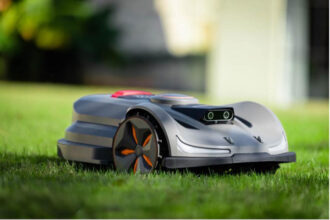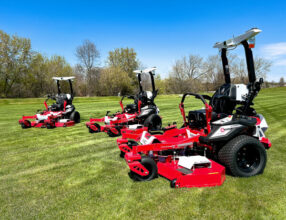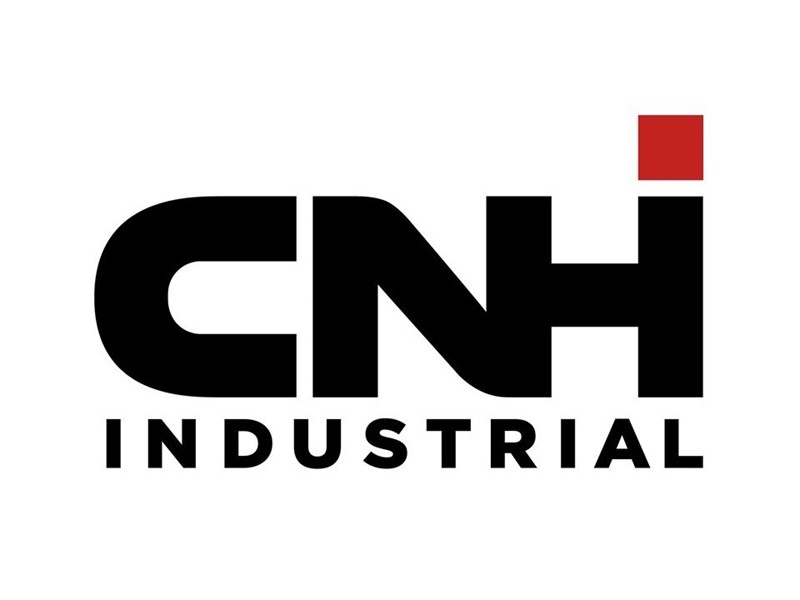Next-gen OPE users (Part I): Three sales strategies when selling to Millennials
First article in a two-part series
By Carissa Gingras
By 2030, the Millennial generation — individuals born between 1977 and 1995 — will account for a third of all homeowners. This group, also known as Gen Yers, is currently responsible for $200 billion in annual spending power. If you thought the 78-million Baby Boomers were important to your business, keep this mind: Millennials will outnumber Baby Boomers by nearly 20 million, and they are on track to outspend Baby Boomers by the year 2017.
These younger consumers are said to be the most highly educated, tech-savvy and diverse demographic to date. When it comes to buying products or services, they have high expectations — of the products, the sales outlets, and their relationships with dealers and service centers.
To drive long-term brand loyalty, forward-thinking companies need to proactively engage with this audience through more relevant sales conversations, a broader spectrum of communication channels, and more differentiating marketing messaging.
Swaying a Millennial to go from prospect to owner — especially with larger-ticket items like outdoor power equipment — requires a deeper understanding of the audience.
Photos courtesy of Consumer Engine Group, Briggs & Stratton CorporationThis group has specific requirements from both the products and the brands they purchase. And the tone of that communication needs to resonate with them. Some things Millennials look for from a brand include the following:
* Authenticity: This younger consumer has grown up in a world of instant communication and sensationalized media. From reality shows about baby beauty pageants, to photo-shopped news stories, to hacked Twitter accounts, Gen Yers are skeptical of what they see and experience. So when they become responsible homeowners, they are looking to make the right choices for their home. And, they are particularly sensitive to ensuring the brands they choose are genuine. If the engine on a piece of outdoor power equipment states that it’s the quietest in its class, or that it will start in one or two pulls, it’s going to have to deliver on those promises.
* Longevity: Given the recession’s role in forcing many strong companies out of business, consumers are more wary of buying into any brand. Consumers are seeking goods from companies that have a history of long-term stability, backed by years of expertise, proven reputation and reliability, and most importantly, the wherewithal to endure whatever the future may bring.
* Want to be heard: It’s a group filled with a collection of different attitudes, each with its own motivations and preferences. They want their opinions and feedback to be heard and respected. Speaking their language, and listening to their needs and wants, is critical to creating a positive experience that’s worth coming back for and sharing with others.
As the first article in a two-part series on selling and marketing to Millennials, the following will focus on three ways to refine your sales pitch to better connect with and influence this generation.
1) Make the engine matter. In an annual survey of more than 2,000 homeowners and outdoor power equipment owners, Briggs & Stratton found that consumers who have a preference about their engine brand are likely to spend 10-percent more on their lawn mower than those without a preference. However, the Gen Yer homeowner is the least likely to know about the engine on their mower. Therefore, there is an opportunity for dealers to better educate this new-to-the-category consumer in a way that is valuable to both the homeowner and the dealer.
When a younger customer walks into the store asking for a recommendation on the best walk-behind mower, dealers have a window of opportunity to include the engine as part of the conversation. The key is to deliver digestible information, such as the fact that the engine and mower work in tandem to get the job done. It’s important to talk about an engine’s torque as the true indicator of performance, and to talk about how the higher the torque, the stronger the engine.
Key talking points for selling outdoor power equipment to the Millennial customer might include the following:
* A reliable engine manufacturer that has been around for a while means more expertise, and greater chances that brand will be around in the future.
* Durability equates to convenience. No worries over frequent or time-intensive maintenance, not to mention costly repairs.
* Easy starting and a commitment that the engine will start in less than two pulls means the mower is ready when needed.
* An engine with more torque means more power to get the job done — faster.
2) Emphasize service capabilities. Unlike the DIY generations before them, a majority of Millennials aren’t interested in “do-it-yourself maintenance” for their outdoor power equipment. With more technical components involved, these individuals value the speed, convenience and expertise of a professional that will take care of any maintenance- or service-related issues for them. And that’s good news for dealers who continue to focus on growth opportunities through enhanced service offerings.
Internal research shows that 47 percent of OPE buyers will return to the same place they purchased their equipment from, whether it’s to buy additional products or to get service-related assistance. In order to leverage this opportunity, dealers should ask themselves, “Am I offering a full range of repair services? What other types of technical help can I provide?” Having conversations with customers at the time of purchase, and reminding customers of ongoing maintenance timelines, will help ensure dealers are top-of-mind as questions or issues arise.
Service capabilities go beyond the dealer — to the manufacturer. Dealers should have a solid relationship with their manufacturing partners, relying on them to help consumers with questions that can be solved over the phone. This works particularly well if the manufacturer has a strong customer service department, with live customer service representatives on the other end of the phone. Maybe the individual needs to find an answer in a manual or has a troubleshooting-related situation on their hands. The manufacturer’s customer service department can handle these requests, freeing up dealers to focus on major service and repair issues.
3) Communicate brand attributes. Knowing Millennials have different motives to buy is reason enough to emphasize more than just product features. The brand behind it, and its respective characteristics, will likely be stronger selling points given this audience’s vested interest in knowing what it stands for before thinking about becoming a loyal customer. Following are points known to resonate well with this audience:
* American-made
Recently, you’ve likely seen several stories circulating in the media about a growing desire for products made in America. A study titled, “Millennials Value Made in the USA,” says that products with a “Made in the USA,” reference rise to the top when Millennials are considering a purchase. This generation has been hit extremely hard by the economic downturn — perhaps one reason 74 percent of this group seeks out American-made goods. To them, it means jobs for American workers. Other studies show that 80 percent of U.S. consumers vote for American-made products, and more than 60 percent of Chinese consumers say that they are willing to pay more for American-made goods.
Manufacturers committed to American manufacturing will likely see an increase in demand for their products as “Economic Nationalism” continues to grow.
* Longevity and reputation
How long has the company been in business? Why do most customers choose a company’s products? Is the company introducing new products? And how much awareness is there in the marketplace of the brand? During the recession, many solid companies have been forced out of business, making it tough for consumers to find reliable products.
Millennials will turn to companies with a proven reputation, backed by years of industry expertise and knowledge in their respective industry.
* Social cause
A study titled, “The Millennial Generation: Pro-Social and Empowered to Change the World,” declared that a shared passion for a cause can foster a strong personal relationship between a brand and its target consumer. Given their need to connect with a company on a more humanized level, younger consumers are prepared to either reward or punish a company, depending on its commitment to social and environmental causes. Dealers will benefit by better understanding how their manufacturing partners are contributing to people, the planet and related profits, and sharing those efforts with their customer.
* Innovation
While innovation is appealing to this audience, keep in mind they are skeptical. So, products with new innovation — with a “cool factor” — need to still be practical, and relevant to their lives. Quieter engines may mean Millennials can mow their lawn with family and friends within earshot, or Millennials can mow earlier, or later, and still abide by neighborhood noise requirements. A lightweight and durable lawn mower with an easy-starting system makes it easier for people to manage the equipment, and provides the confidence that their equipment will start when they need it. Manufacturers that take a bold approach to design, while also keeping application and consumer needs in mind, will be an invaluable partner to dealers looking to increase sales with Millennials.
Tailoring your sales conversation to attract a new generation of buyers will go a long way in creating solid, life-long customers, as well as stronger relationships with your manufacturing partners.
Carissa Gingras is marketing director of consumer engine and service with Briggs & Stratton Corporation. In her current role, she focuses on developing communications for dealers and consumers in the outdoor power equipment industry. She has more than 20 years of marketing experience working with both national and global companies, including General Electric, Honeywell, Ashley Furniture Homestores, Bridgestone/Firestone and Bon-Ton Department Stores.



